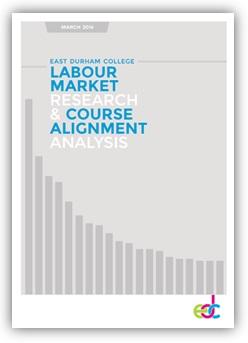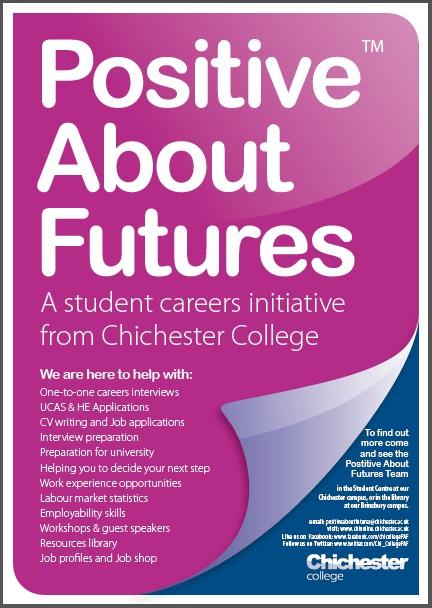Colleges must start delivering relevant courses with good careers advice
Professor Sa’ad Medhat, chief executive of NEF: The Innovation Institute, will have ruffled a few feathers in the FE sector with his recent piece for the Guardian: Colleges must stop delivering irrelevant courses with poor careers advice. Describing the sector as “dysfunctional” and “woefully out of step with industry trends,” Professor Medhat suggests that the sector is riddled with “outdated syllabuses, a focus on skills that do not meet national requirements and a misunderstanding of the true nature of employability.”

As far as apportioning responsibility for this situation, Professor Medhat sees the root of the problem in the funding and qualification system:
The qualification system is at the root of the problem. Vocational qualifications are set by boards and must follow Ofqual guidelines. Updating them is a laborious process that can take up to two years. The system is simply too slow to keep up with the rapid changes in industry.
However, although acknowledging the funding constraints colleges find themselves under, Professor Medhat doesn’t let colleges themselves off the hook. He suggests that some employers are pretty much giving up on the sector, as it is simply not catering for the needs they have. Anecdotally he points to conversations he has had with college lecturers who have little or no idea of the sorts of occupations that the students they are teaching could go into, as well as conversations with students who appear not to know what occupations they could do using the qualifications they are working towards.
So essentially what Professor Medhat is pointing to is a three-fold problem:
- where qualification and funding bodies rely on outdated formulas and fail to take into account the needs of a college’s local industry,
- where colleges are failing to produce curriculums which respond to the demands of employers,
- and where young people are being let down by substandard careers advice.
According to Professor Medhat, this is a disastrous combination: “To carry on with what we’re doing now, delivering irrelevant courses with half-baked careers advice, is to short-change a whole generation.”
So what needs to happen? If Professor Medhat is right, the system needs to move away from one where colleges are rewarded for sheer numbers, or for putting on “approved” courses, to one where they have the flexibility to produce curriculums that really do serve the skills needs of employers in their area, and where learners are given proper information about their employment options. Or, to adjust the title of Professor Medhat’s piece to something a little more positive, “Colleges must start delivering relevant courses with good careers advice.”
Although there is undoubtedly much truth in what Professor Medhat is saying, at the same time it needs to be acknowledged that there are actually many colleges out there who are acutely aware of the problems he identifies and who are taking tangible steps to address the problems. He mentions a couple – New College Durham and Newcastle College Group – who are now awarding their own higher qualifications, such as foundation degrees. But there are other colleges out there who are applying different solutions to the problems.
 For example, earlier this year East Durham College asked us to undertake a Labour Market Research & Course Alignment Analysis, a report which compared their current curriculum with the skills needs of their local labour market, analysing areas in which they were either over-supplying or under-supplying skills to the local economy.
For example, earlier this year East Durham College asked us to undertake a Labour Market Research & Course Alignment Analysis, a report which compared their current curriculum with the skills needs of their local labour market, analysing areas in which they were either over-supplying or under-supplying skills to the local economy.
One particularly noteworthy finding was the data showing significant skills needs in the agriculture/equine; arboriculture and forestry; and environmental conservation sectors in the local area. East Durham used the findings to plan for increased provision in these skills areas, and in addition to this, they were also able to use them as part of a successful bid for £10,000,000 worth of funds to redevelop their Houghall Campus – a campus which specialises in the type of skills the data had identified as being in demand.
In other words, by using local economic intelligence to identify the skills needs of industries in their area, East Durham was not only able to understand where they might need to increase their provision to benefit the local economy, they were also able to use this information to help them in getting extra funding – exactly the kind of thing that Professor Medhat is calling for.
What about Professor Medhat’s charge that colleges are letting down a generation of young people by dishing out poor careers advice? Again, there is undoubtedly a ring of truth in this, but once again we need to recognise that there are a lot of colleges out there who acknowledge this and who are attempting to implement solutions.
 One example amongst many would be Chichester College. Back in 2012, Chichester undertook a major revamp of their careers service, creating the Positive About Futures careers advice centre, inviting us to partner with them to bring local labour market intelligence in front of their learners and prospective learners. According to the college’s Student Experience Champion, Darren Thompson, the college has now been able to share information on things like occupation prospects, earnings and transferrable skills in more than 1,000 one-to-ones. By adding actual facts and figures to the advice being offered, the College is able to guide young people into learning skills that are really needed in their local economy.
One example amongst many would be Chichester College. Back in 2012, Chichester undertook a major revamp of their careers service, creating the Positive About Futures careers advice centre, inviting us to partner with them to bring local labour market intelligence in front of their learners and prospective learners. According to the college’s Student Experience Champion, Darren Thompson, the college has now been able to share information on things like occupation prospects, earnings and transferrable skills in more than 1,000 one-to-ones. By adding actual facts and figures to the advice being offered, the College is able to guide young people into learning skills that are really needed in their local economy.
This is exactly the sort of solution needed to solve the problem mentioned by Professor Medhat, and it does not go unnoticed by the regulators. In their recent Outstanding award from Ofsted, the efforts made by the College to address the need for good careers guidance was singled out for praise:
“Managers and staff provide extremely useful and pertinent information, advice and guidance to ensure learners make informed study and career choices. The ‘Positive about Futures’ team is particularly effective in providing detailed information on employability and labour market trends for managers and teachers to use to inform curriculum planning. Learners make very good use of an on-line resource that provides clear information about jobs and employment opportunities across the region.”
In conclusion, I believe that Professor Medhat is right to raise the concerns he has about the sector, and the points he raises have a lot of validity. However, there are solutions to these problems.One of these is access to good data on the needs of local industry, empowering colleges to produce curriculums which meet those needs, empowering learners to choose courses which will lead to sustainable jobs, and persuading funding and qualification bodies of the value in taking this approach. Although Professor Medhat’s piece was, by and large, fairly negative, the fact that there are a number of colleges out there already addressing the issues he highlighted is reason to be cheerfully optimistic about the future.
Andy Durman is VP for UK operations at Economic Modelling Specialists International, the labour market information firm











Responses